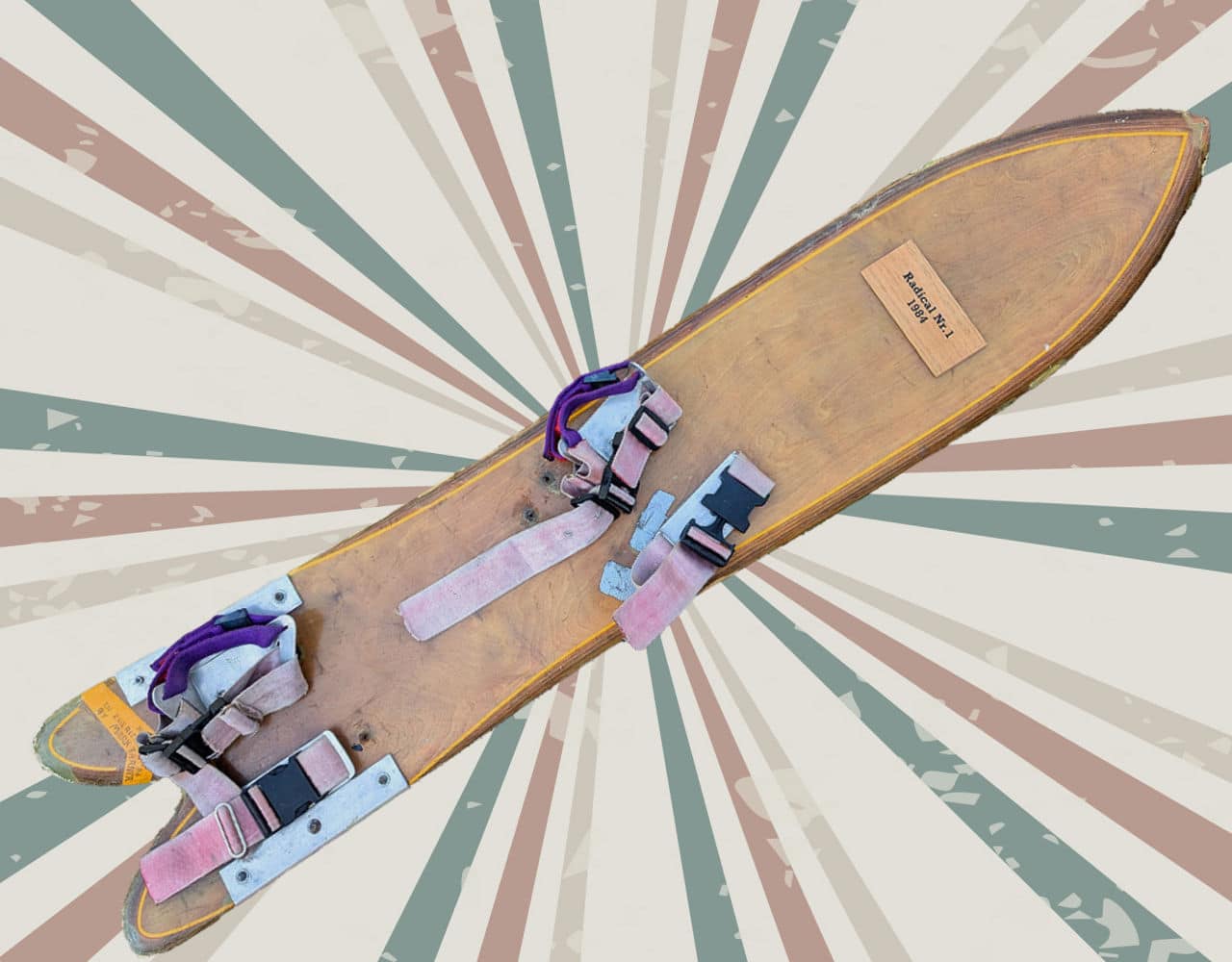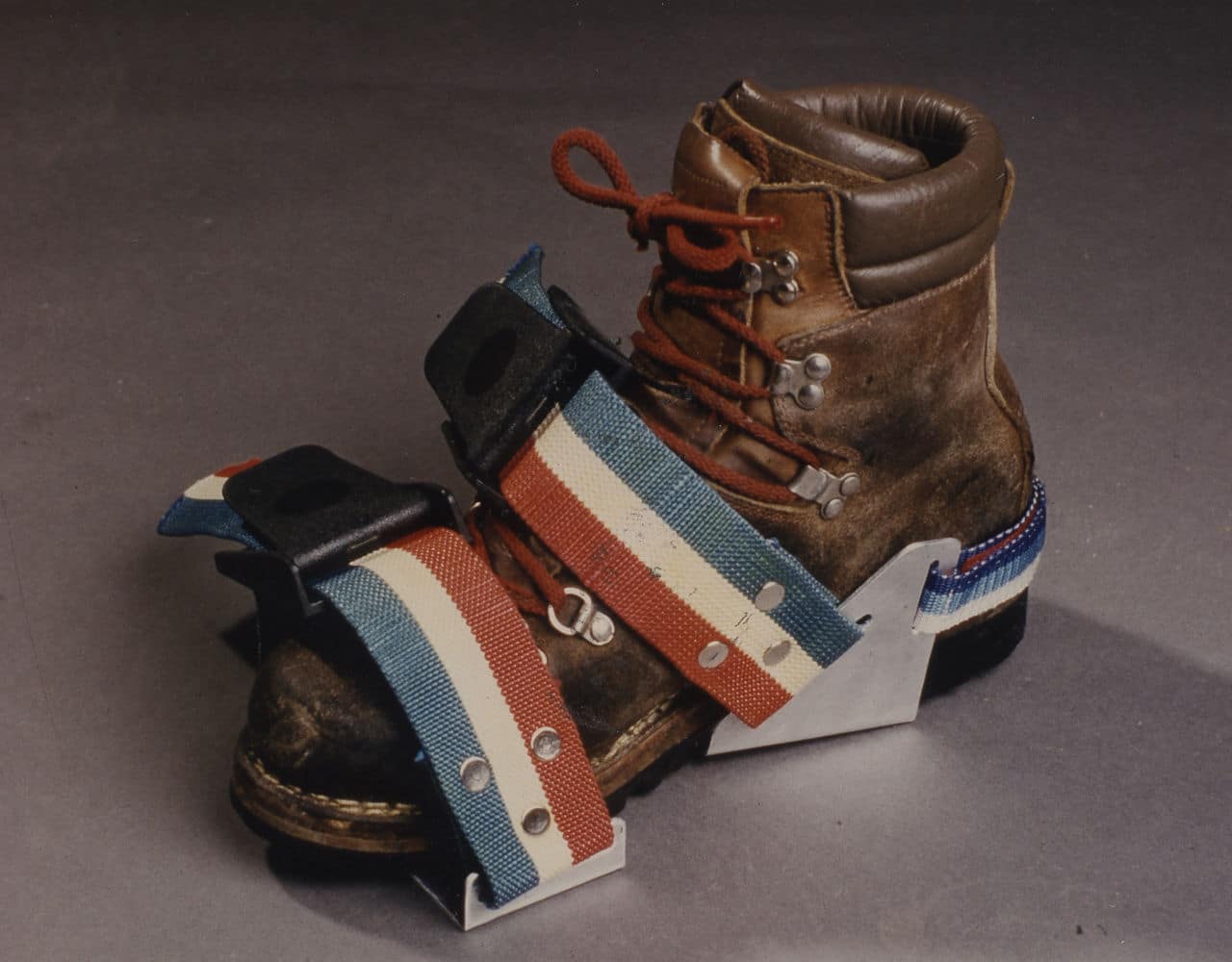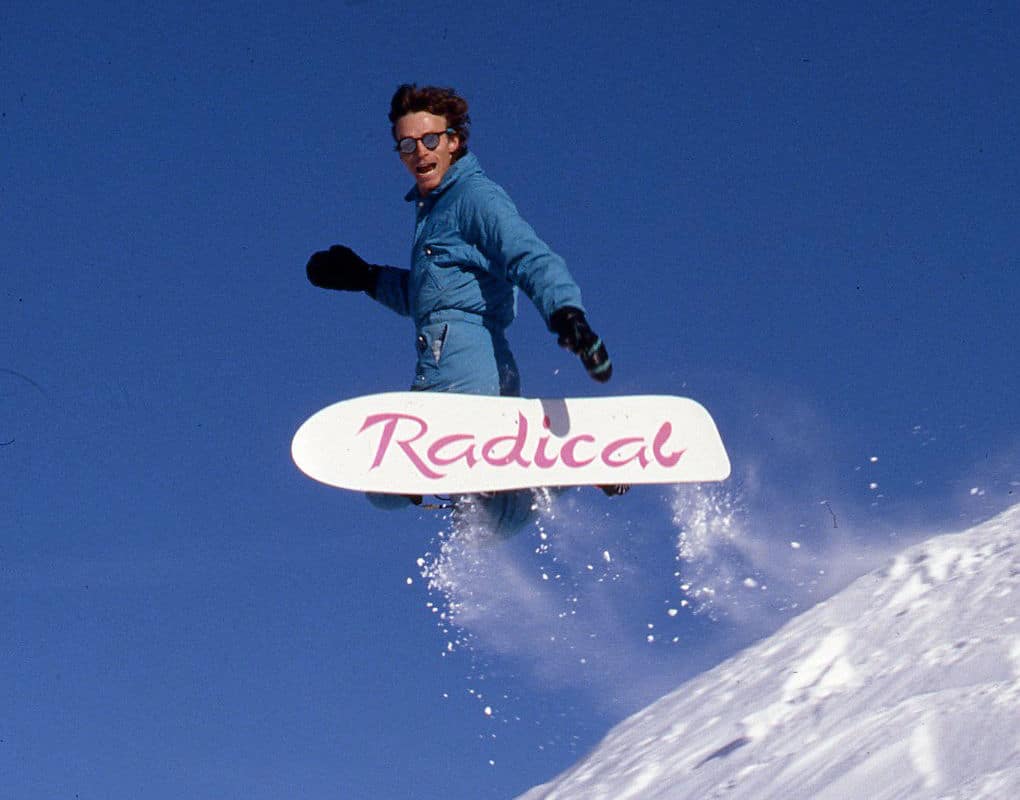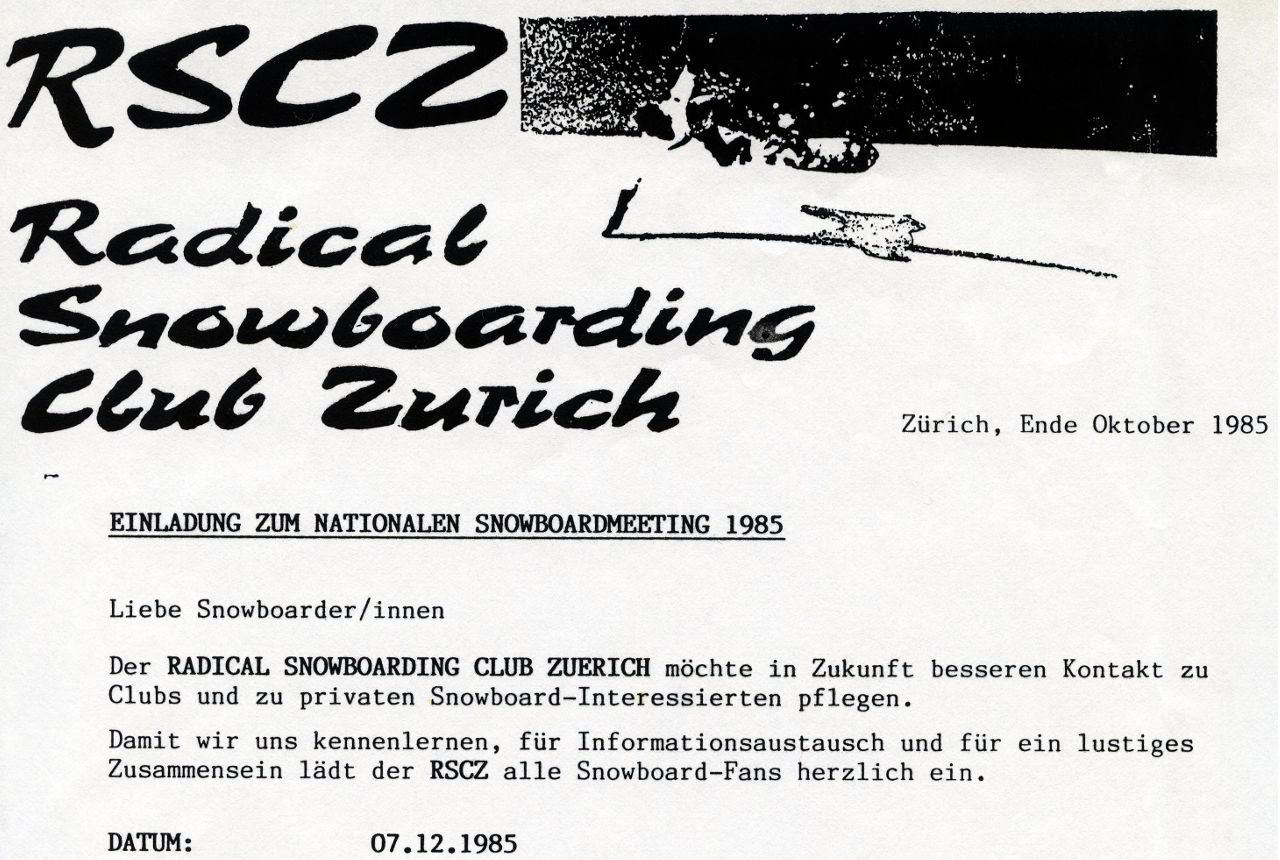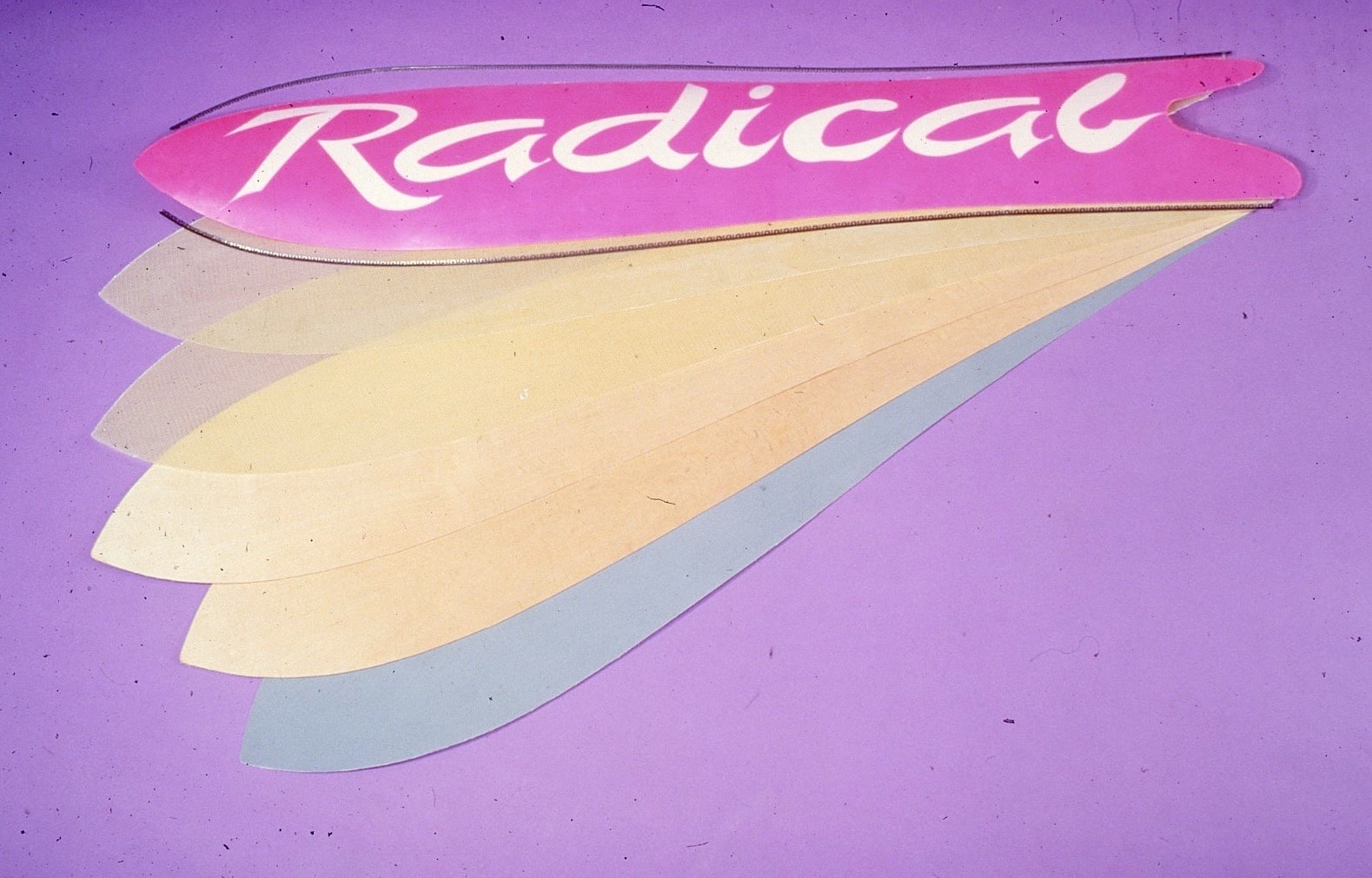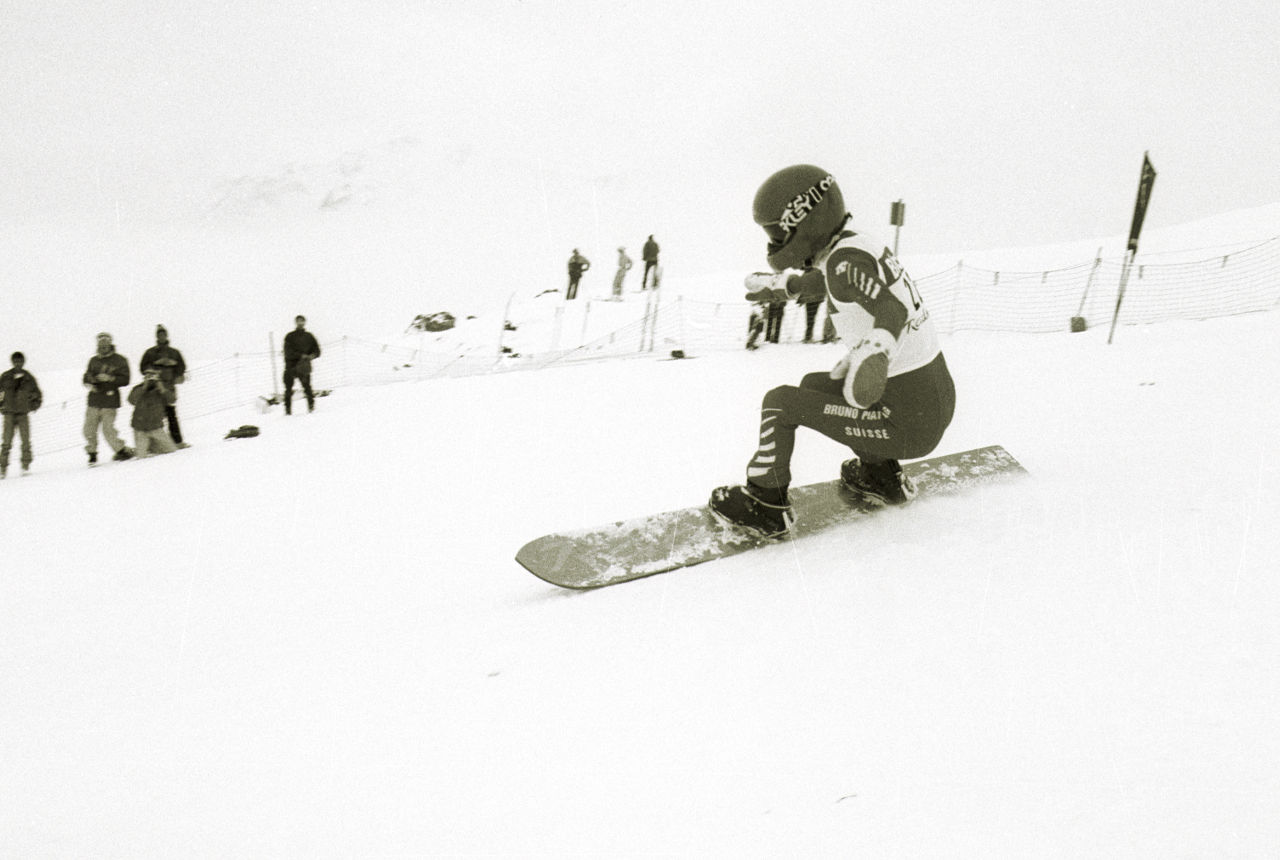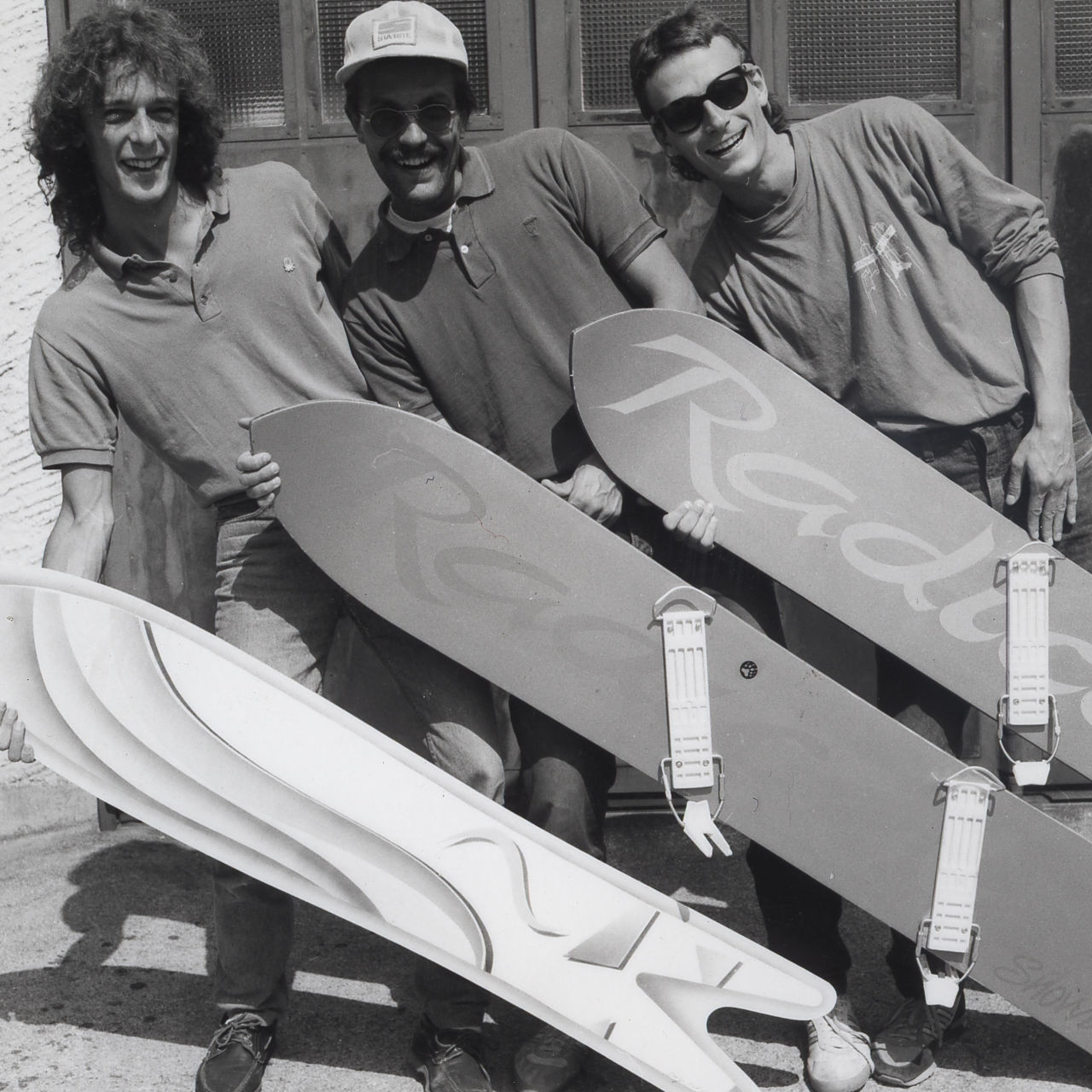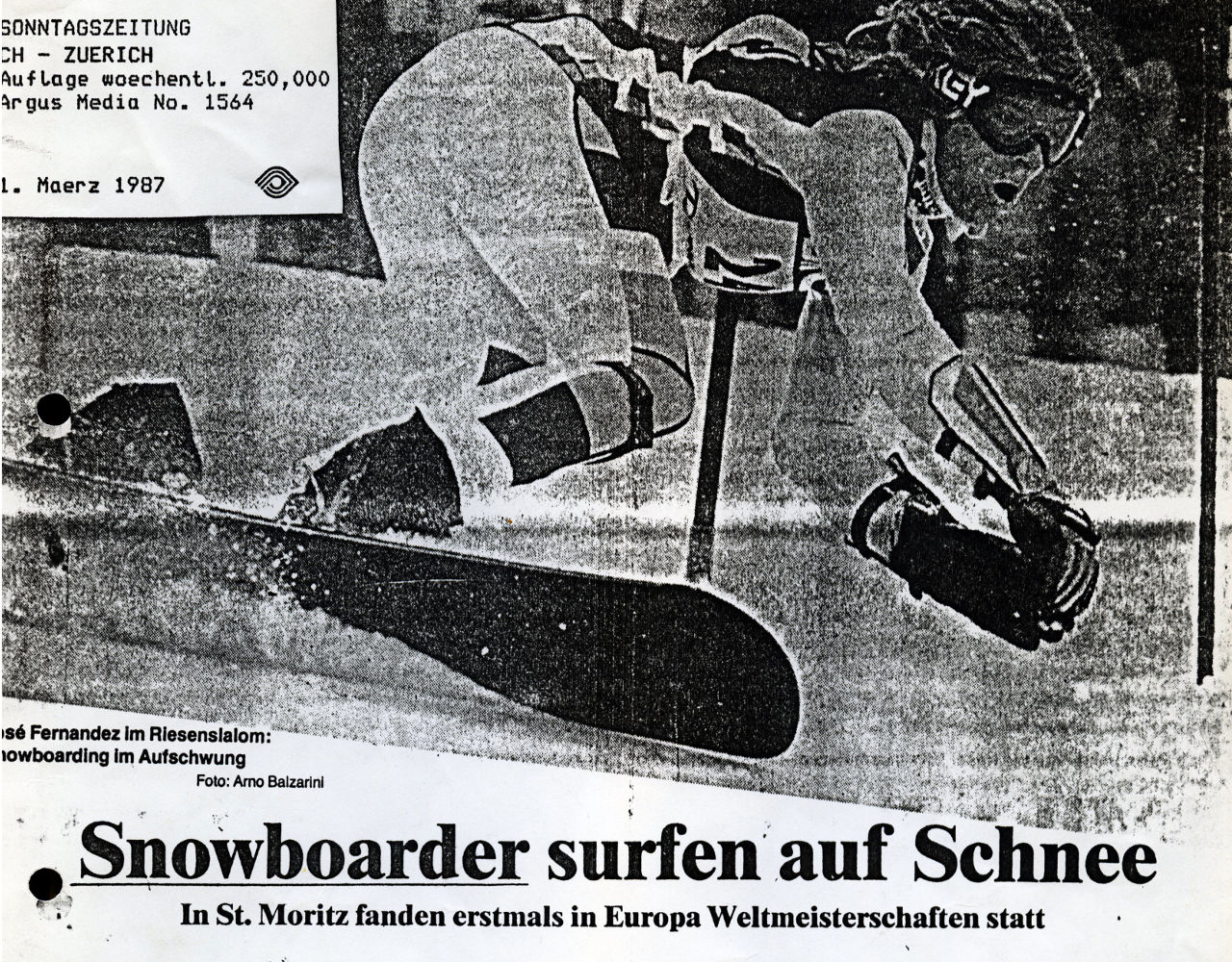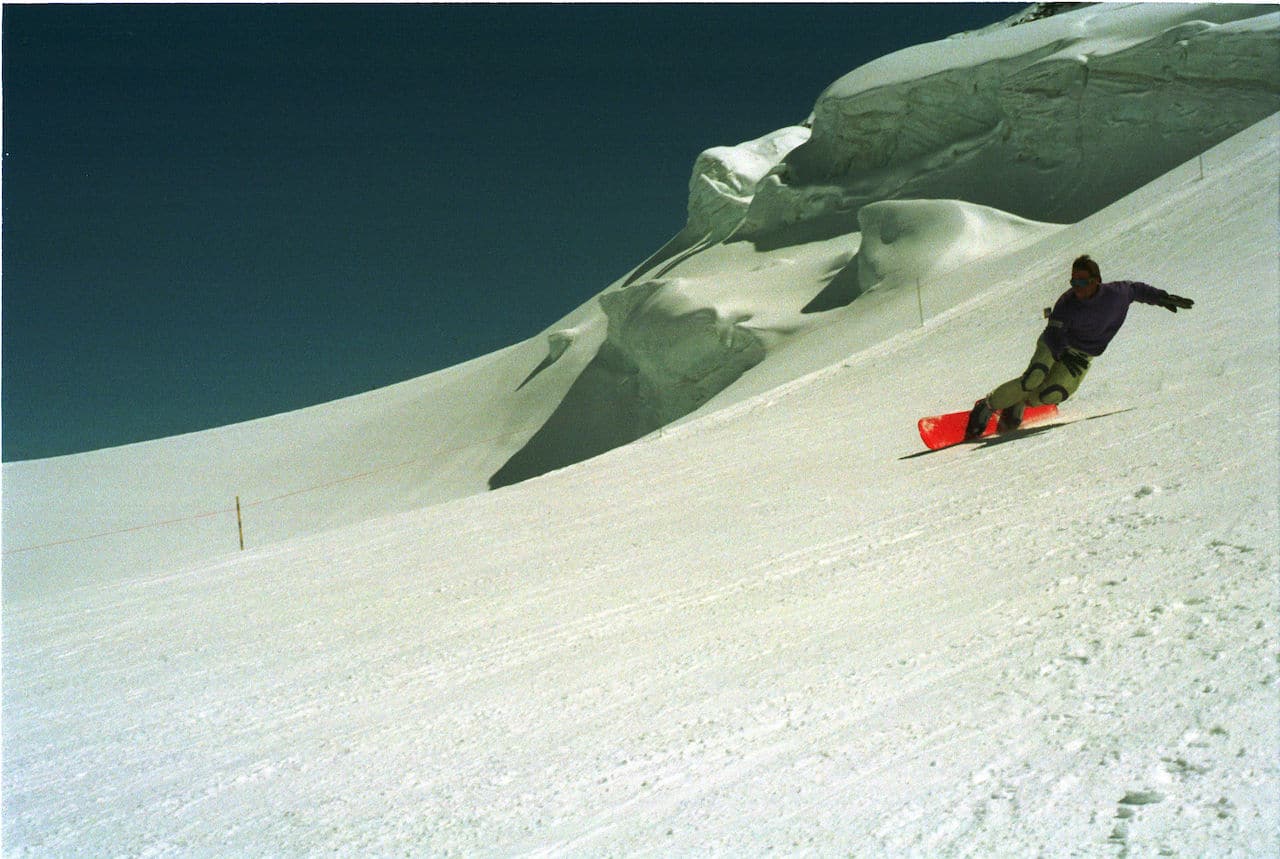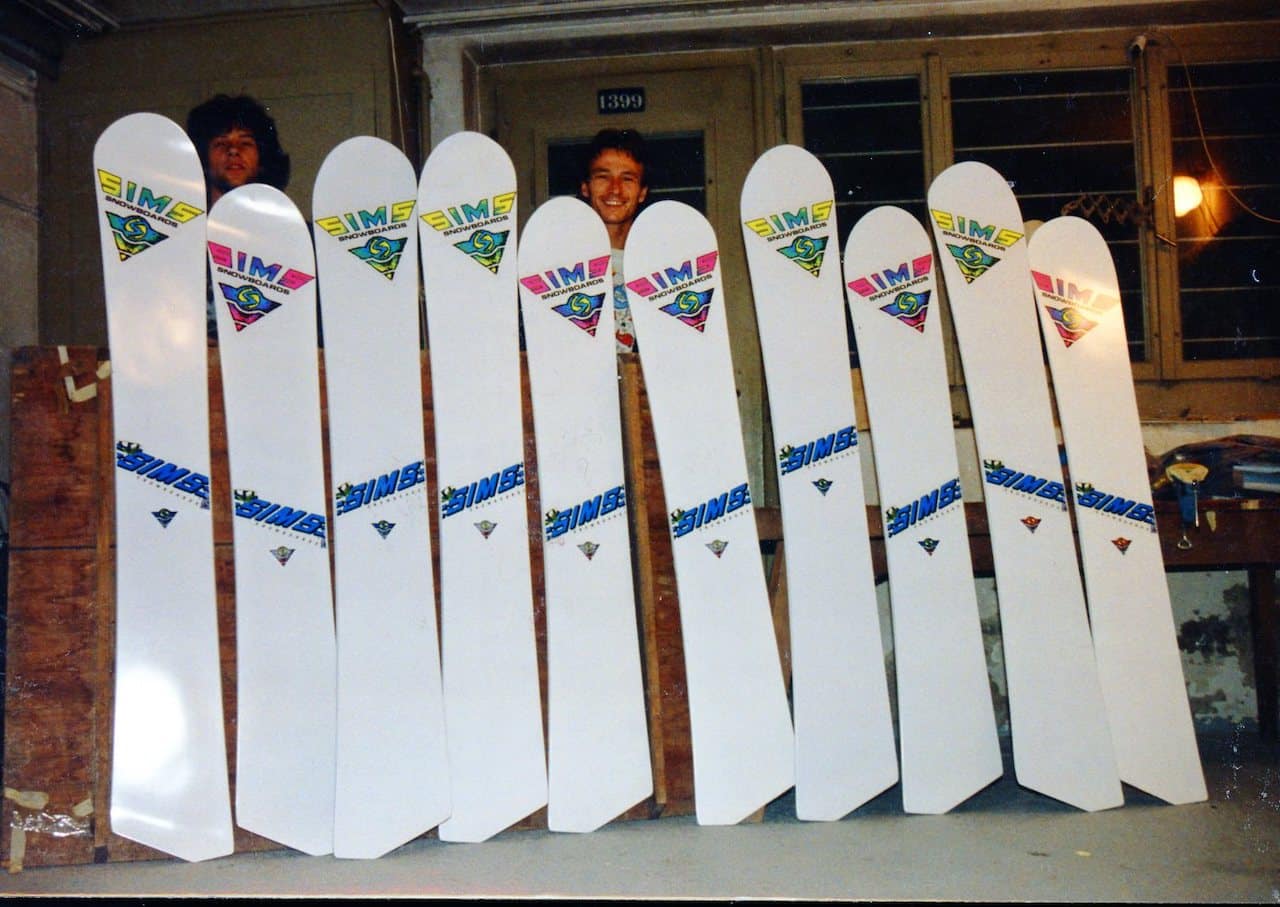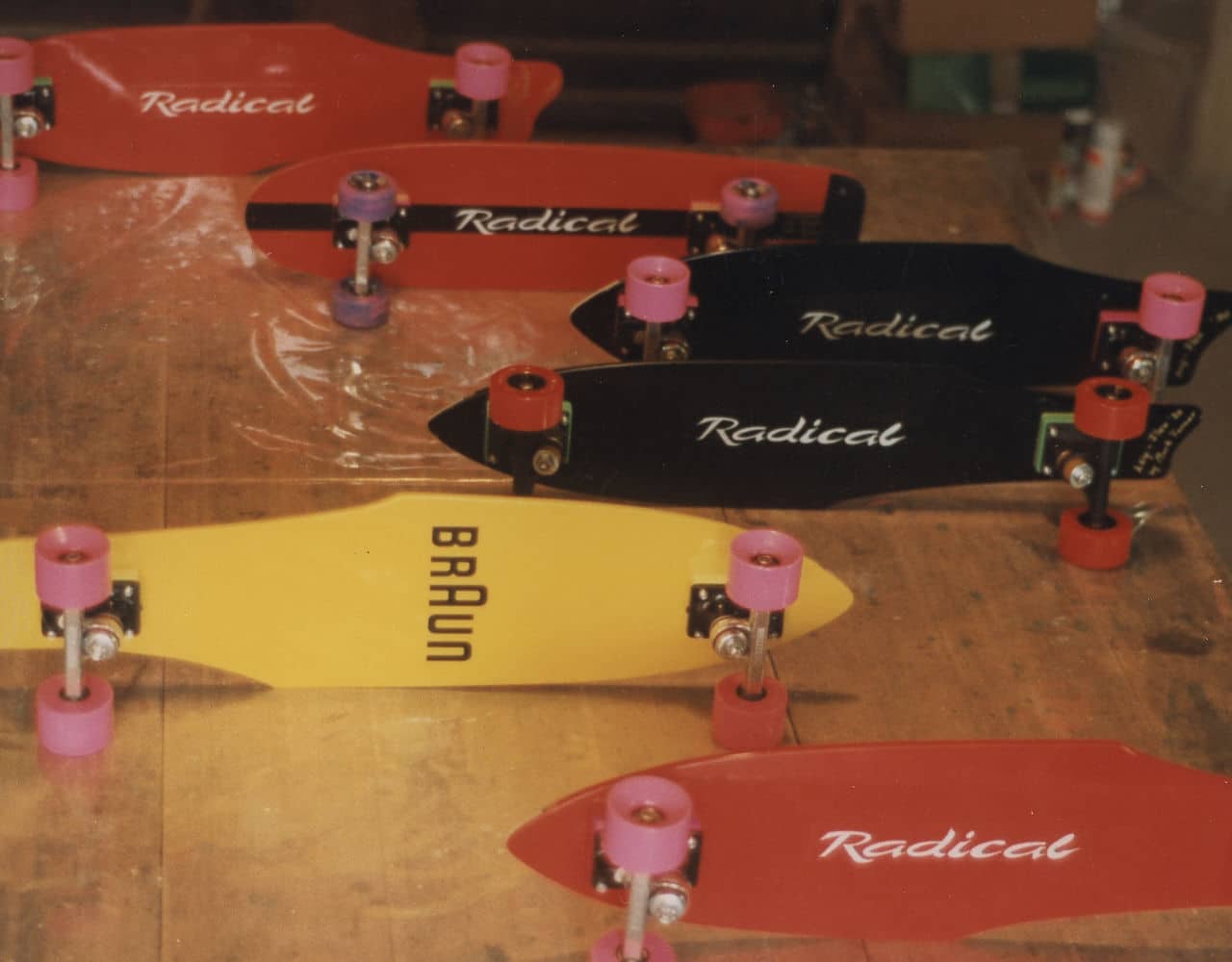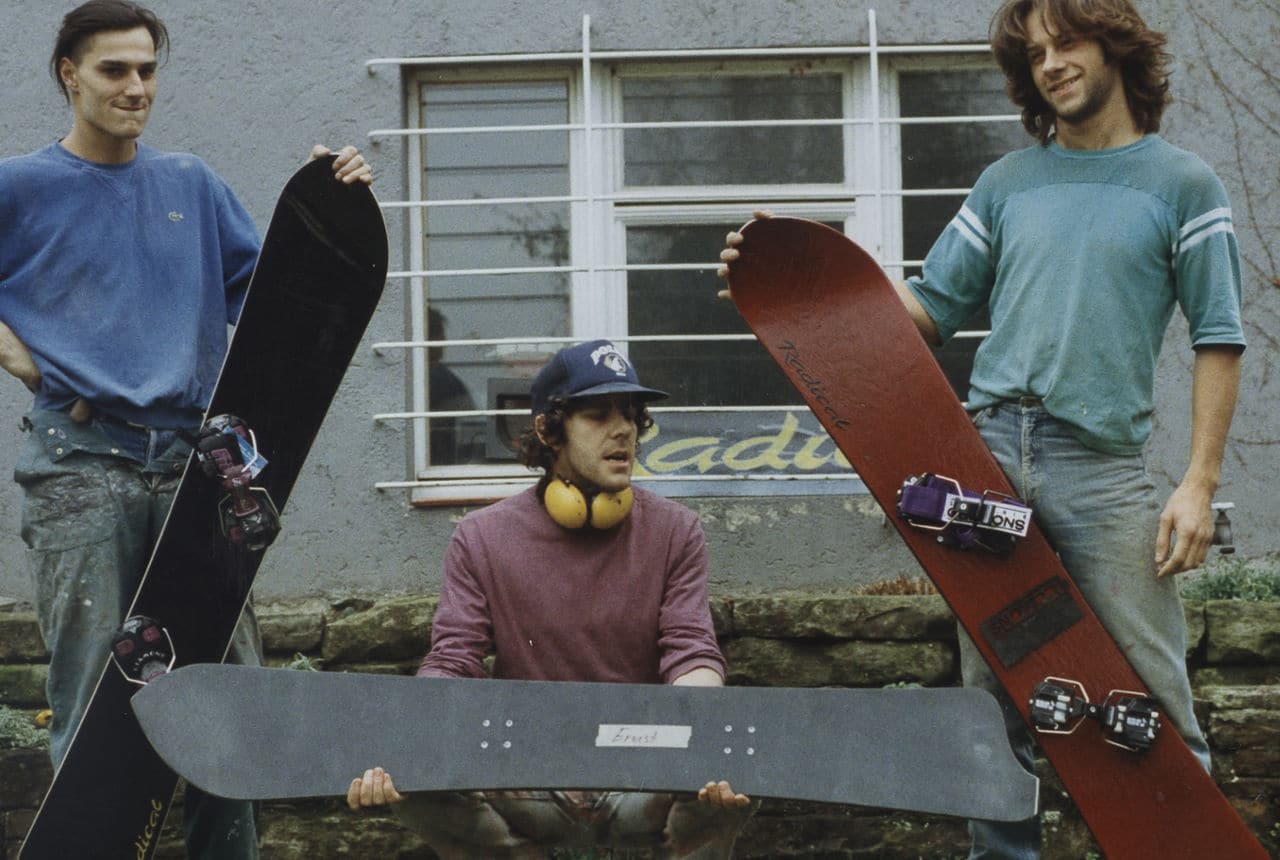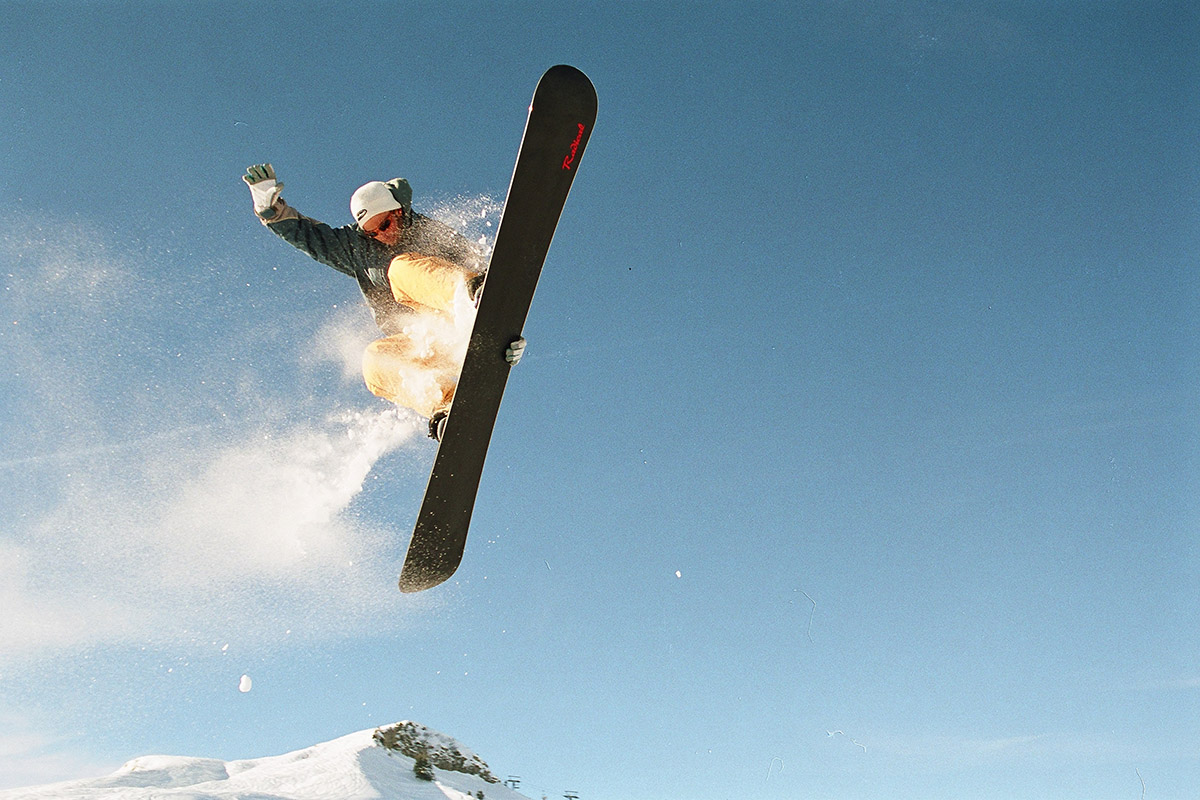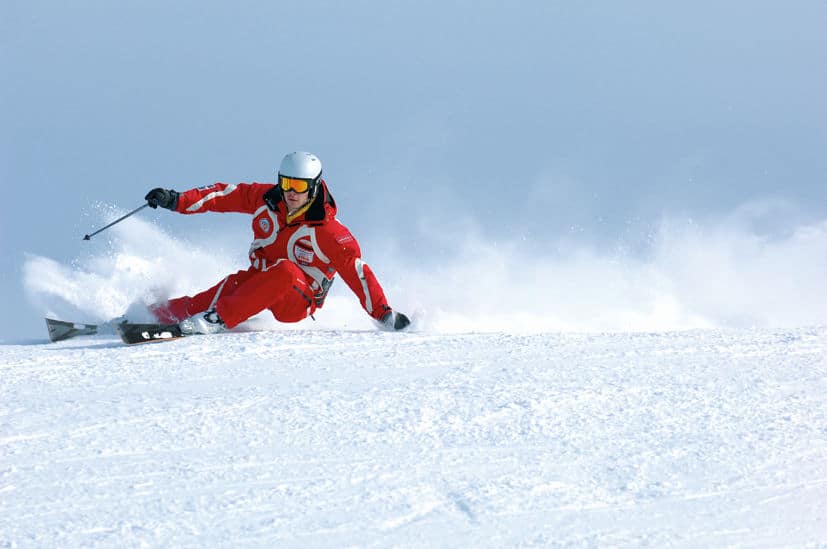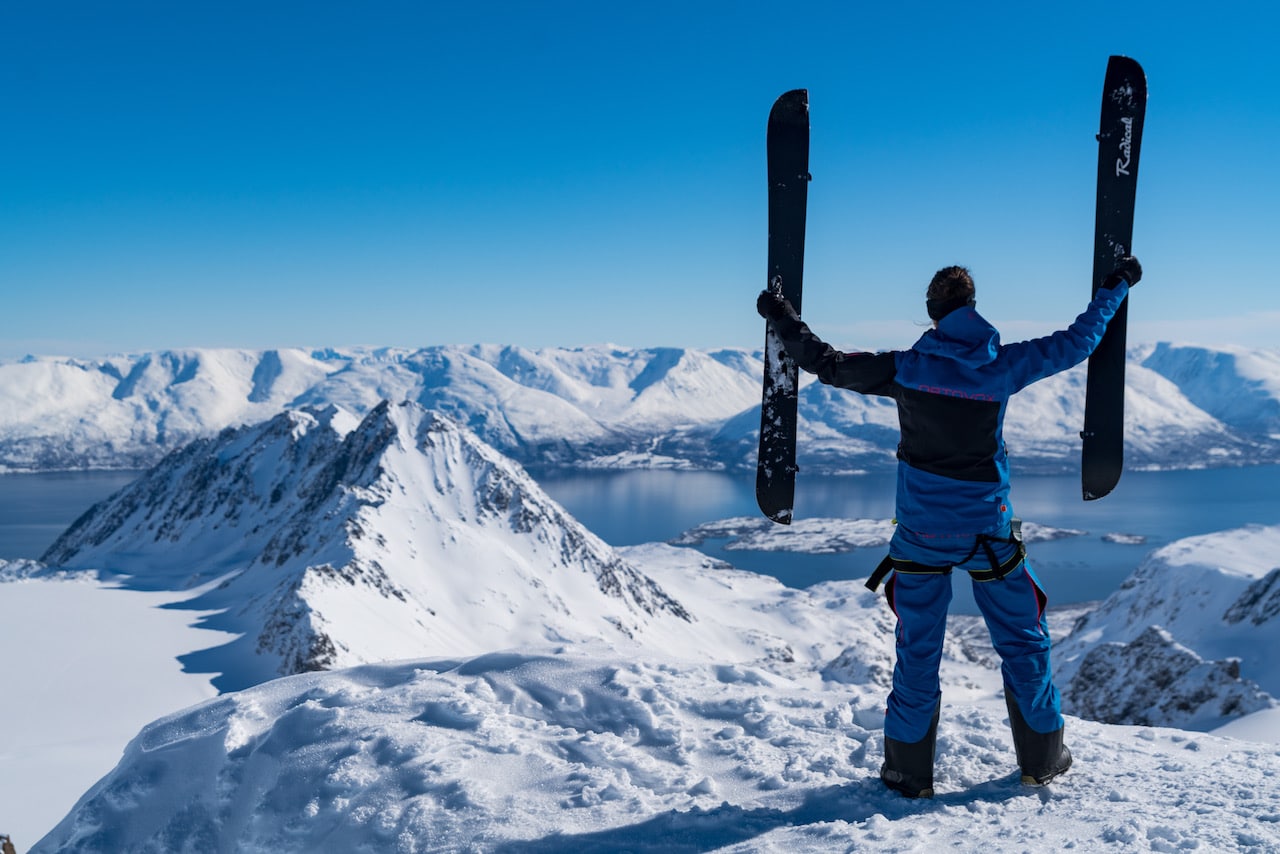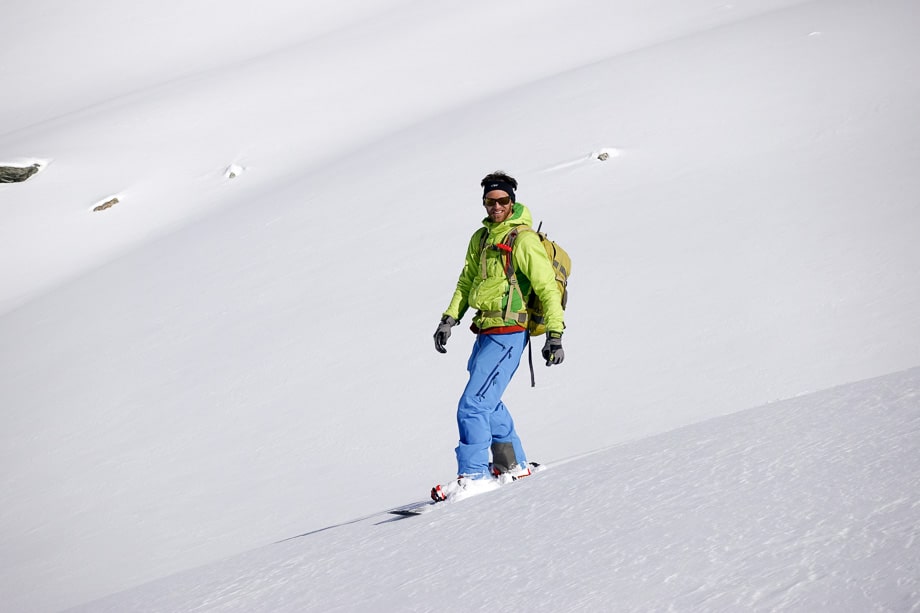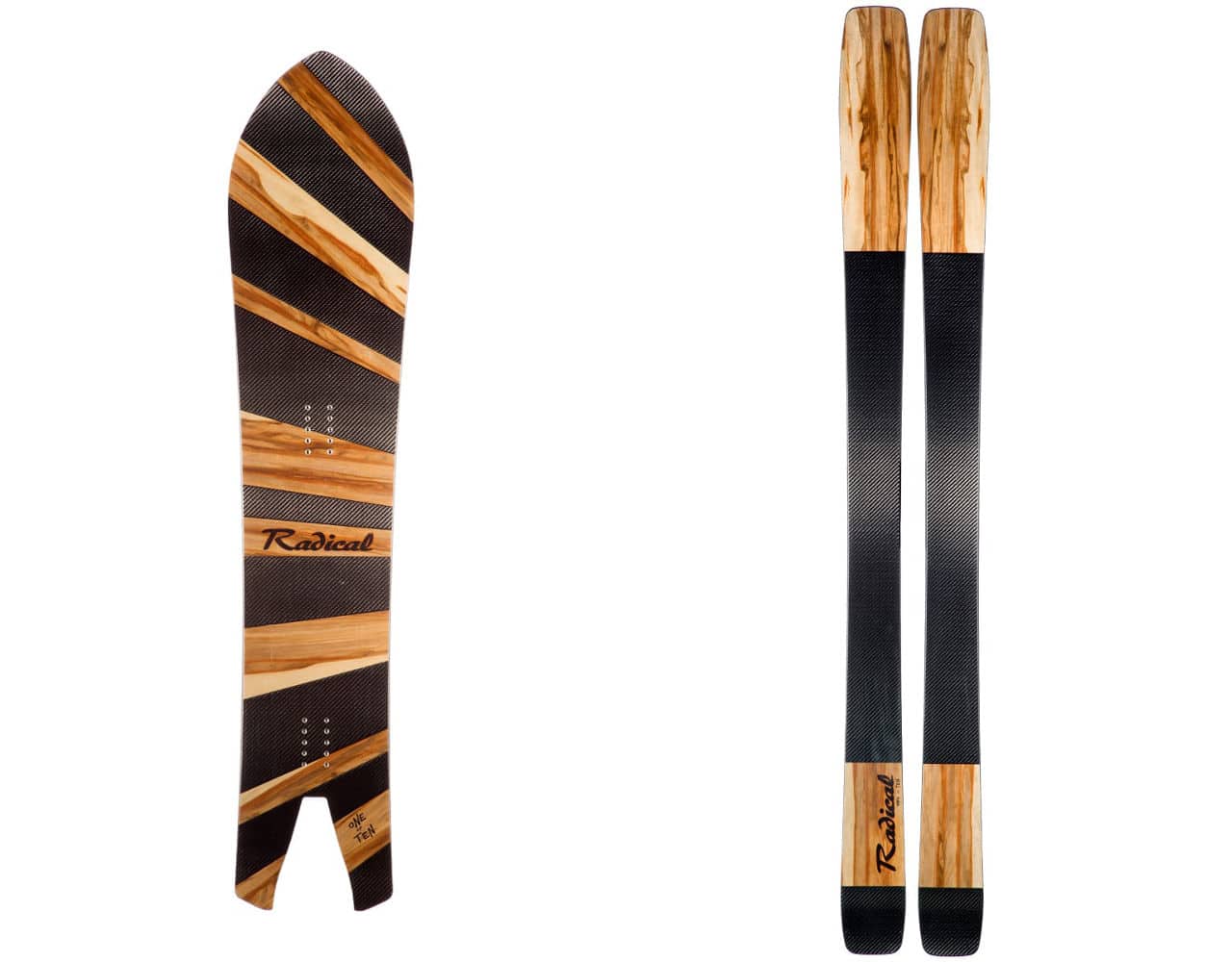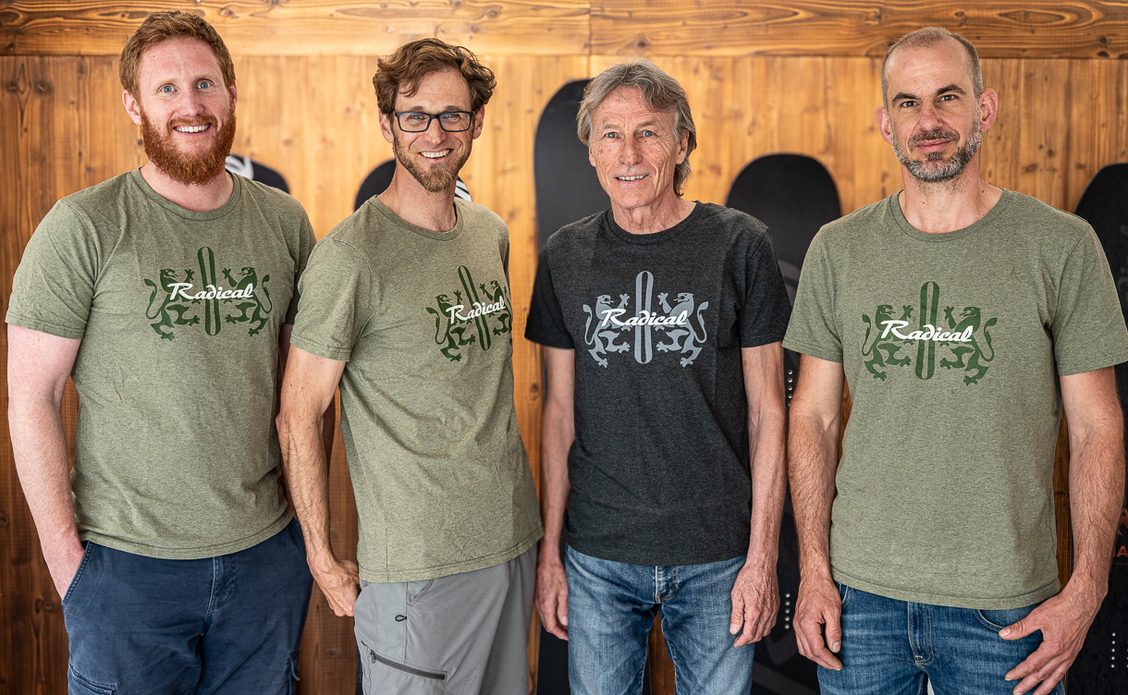Our history
Over 40 Years
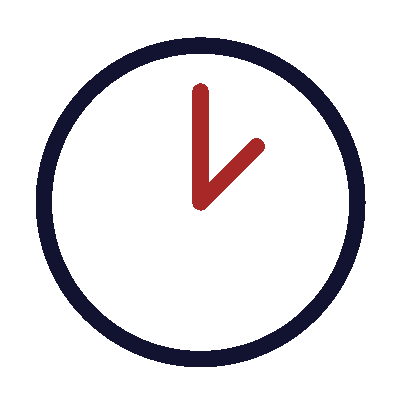
1984
Radical No. 1
The Radical No. 1 from 1984, made by Mark Farner, was a milestone in the Swiss snowboard scene.
With a core of Finnish plywood and a fiberglass-wood sandwich, it offered outstanding stability. The purple stained design with yellow filé stripes and side aluminum L-rails as fins made it unmistakable.
It was ridden with Raichle leather mountain boots.
More than 200 people have learned to snowboard on this board.

Necessity is the mother of invention
The snowboard scene in 1984 was still young and suitable bindings were hard to find. Most people skied with ski boots, but they were too hard and didn’t allow the desired surfing feeling.
The picture shows one of the first bindings made of aluminum and aircraft lashing straps.
Employee Marco Franzoni then developed a binding made from polyethylene sheets.
These were heated to melting point in the oven and then pressed in a small mold.

The name Radical
After the first ride on his self-made board in December 1984, Mark Farner chose this name because the riding experience was so close to surfing – a radical, deeply rooted experience.
The name reflects the Old English meaning of “radical” as “back to the roots”, which fits perfectly with Mark’s vision of surfing in deep snow.
The Latin origin of the word “radix”, which means “root”, emphasizes this connection and is symbolic of the original idea behind Radical.

1985
Radical Snowboard Club Zurich (RSCZ)
Mark Farner founded the Radical Snowboarding Club Zurich (RSCZ), which is considered to be the first snowboard club in Europe.
The club was committed to promoting and spreading the sport of snowboarding and organized training courses for anyone interested.

First snowboard with running surface and edges
In the same year, Radical developed the first fiberglass-wood sandwich board with a P-Tex base and glued-in steel edges, which made it possible to ride on groomed slopes.

1986
First Swiss Championships in St. Moritz
In February 1986, the Radical Snowboard Club Zurich organized the first international Swiss snowboarding championships in St. Moritz. Mark Farner was active in competitive sports until 1991 and was always among the top ten during this time.
Snowboarding was banned almost everywhere (with the exception of Hoch-Ybrig and Laax).

Radical in specialist shops
In 1986, Radical also began producing small series for Swiss specialist retailers.
By working closely with selected specialist retailers, Radical was able to respond to market trends at an early stage and establish itself as a pioneer in the Swiss snowboard market.

1987
RSCZ organizes first World Championships in St. Moritz
The Radical Snowboard Club Zurich organized the first world championships in which the entire world’s snowboarding elite competed.
The competitions took place in St. Moritz and Livigno.
The giant slalom, downhill, special slalom and parallel slalom were held in St. Moritz, while the halfpipe and mogul slope competitions took place in Livigno.
Mark Farner was the main organizer of this event and himself achieved an impressive third place in the downhill, where he competed with a 2-metre Radical board.
The event was supported by well-known sponsors such as the Blick newspaper and Swiss television.
Blick and the Tages-Anzeiger reported regularly on the competitions.
A key success of the World Championships was that almost all ski resorts in Switzerland were reopened to snowboarders after the event – with the exception of Zermatt and Arosa.
The RCSZ had thus achieved its goal of making snowboarding more widely accessible in Switzerland again.
An overview of all winners can be found here.

Foundation of SSBA and SSBS
In the same year as the World Championships, Mark Farner co-founded two important organizations in Swiss snowboarding: the Swiss Snowboard Association (SSBA) and the Swiss Snowboard Instructor Training Association (SSBS).
The SSA was founded to organize competitions and promote the sport of snowboarding in Switzerland.
The SSBS, on the other hand, laid the foundations for the professional training of snowboard instructors and set new standards in teaching.
With his involvement, Mark Farner made a significant contribution to the development and establishment of snowboarding in Switzerland.

1988
Radical produces for top athletes worldwide
Radical Sports specialized in the production of custom-made snowboards, which were also used by competitors from other brands such as Sims, Nidecker, Vision and Killer Loop.
These boards contributed to several successes in international competitions, including by the athlete José Fernandez.

Radical Slalom Skates
The first skateboard collection was also launched in 1988.
The story of Radical Skateboards began back in 1976 when Mark Farner started slalom skating shortly after the first boards arrived in Europe.
From the beginning, he concentrated on slalom flexboards and entered the club and competition scene in 1980.
He was particularly inspired by the skate club on the Landiwiese, the “Swiss Landsurf Association”, where he later attempted his first turns in deep snow together with greats such as José Fernandes, Andi Tanner and Ruedi Matter.
From 1990, innovative developments such as the Asy-Flex and custom skates followed.
In 1994, the longest flex skateboard in the world at the time was built with a length of 125 cm.

1990
First Radical with Carbon-Kevlar construction
Another milestone was the first carbon-kevlar construction.
The future trademark was born: durable and dynamic boards.
After an extensive machine stress test, the unique Radical construction was found to be ten times more durable than competitor boards.

2000
The longest board in the world
The world’s longest mass-produced snowboard was created after several customized one-offs: the Surf 222cm.
Radical attracted a lot of attention with this board, and even the German TV channel ARTE dedicated a report to it.
This can be viewed in our media library.

2004
The birth of the Radical Ski
The range was expanded to include skis and the first collection appeared.
This was a response to the growing demand from snowboarders who also wanted to ski.
The very first series ski from Radical, the “Radical Ski”, was a twin-tip ski designed for all-round use and focused on carving, freestyle and freeride.
The skis were developed in close collaboration with numerous ski instructors and the owner of the Davos sports store Top Secret, Edy Van de Kraats.
Edy, a former World Cup skier, contributed his extensive experience to the process.
Over time, the focus shifted more towards carving and freeride, and the collection grew continuously.
A milestone was the introduction of the Race Carver ski in 2012, which is still the bestseller today.
Fun fact: Another reason for developing the skis was that Mark was fed up with lugging around his girlfriend’s heavy rental skis.
The well-known Radical lightweight construction was therefore also applied to the skis.

2012
“Earn your turns” with the Radical splitboards
Splitboarding had been around for some time, but the binding systems were not yet fully developed.
This has now changed: Radical launched the Lion, an outstanding splitboard that really hit the market.

2013
Guided tours
Under the leadership of professional guide Niki Huwyler, guided splitboard tours were offered to promote the sport and give participants a safe introduction to splitboarding.
This offer struck a chord with the times, and they were of course fully booked right from the start.

2017
The One of Ten series is created
With the “One of Ten” series, unique snowboards and skis were produced, which have since been released every year in a limited edition of just 10 pieces.
Each model is unique – a single length, an exclusive design and never repeated.
You can find a complete overview of the series here.

2024
Long-standing employees take over the company
A new chapter in the company’s history began when the company was taken over by long-standing employees Niki Huwyler, Florian Hösli, Patrick Stauber and Dominic Richard.
They are now running the company with great passion and in the tradition of the original values.
Their aim is to preserve and further develop the spirit and innovative strength that characterize Radical.
Founder Mark Farner will remain with the company as a valuable employee and support the team with his experience and vision.
This continuation underlines the consistency and cohesion within the company, while at the same time bringing a breath of fresh air and new ideas.


